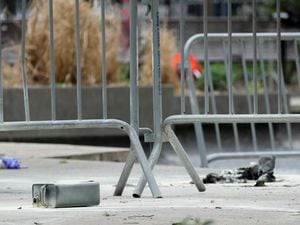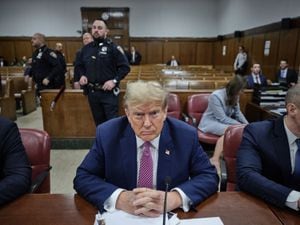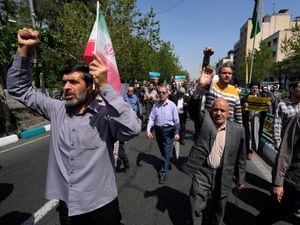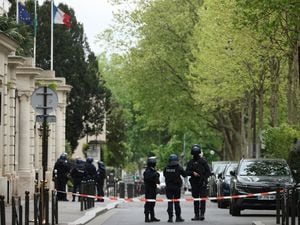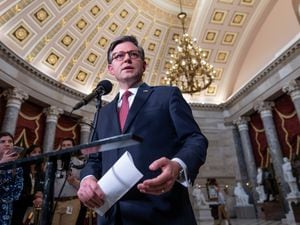President Xi’s visit to Russia one of ‘friendship and peace’, says China
The trip signalled no new progress in ending the conflict between Russia and Ukraine.
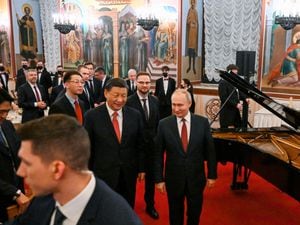
China said President Xi Jinping’s visit to Russia had been a “journey of friendship, co-operation and peace” and again criticised the US for providing military support to Ukraine.
The trip, which ended on Wednesday, signalled no new progress in ending the conflict between Russia and Ukraine, while shoring up Russian president Vladimir Putin’s standing amid growing efforts to isolate him and his government internationally.
Chinese foreign ministry spokesperson Wang Wenbin reiterated China’s claims that it remained neutral in the conflict and said it had “no selfish motives on the Ukraine issue, has not stood idly by … or taken the opportunity to profit itself”.
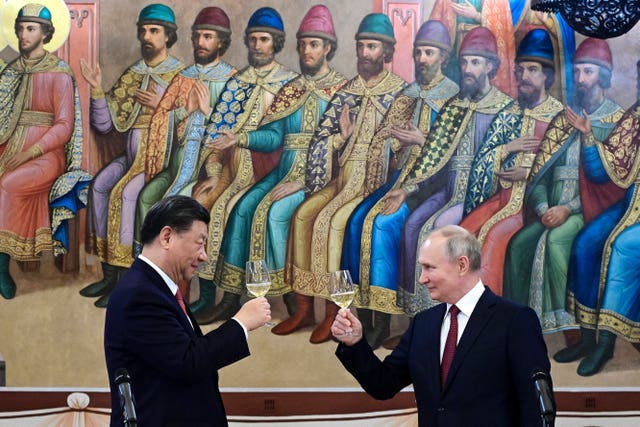
“What China has done boils down to one word, that is, to promote peace talks,” Mr Wang said at a daily briefing.
Mr Wang also accused the US of lacking impartiality and of “fanning the flames” of the conflict by providing defensive weapons to Ukraine to Washington’s own benefit.
The US, Nato and partner nations have openly supported Kyiv since the start of the conflict, and China is widely seen as providing economic backing for Mr Putin’s regime while avoiding being directly involved.
“President Xi Jinping’s visit to Russia is a journey of friendship, co-operation and peace, which has aroused positive responses in the international community,” Mr Wang said.
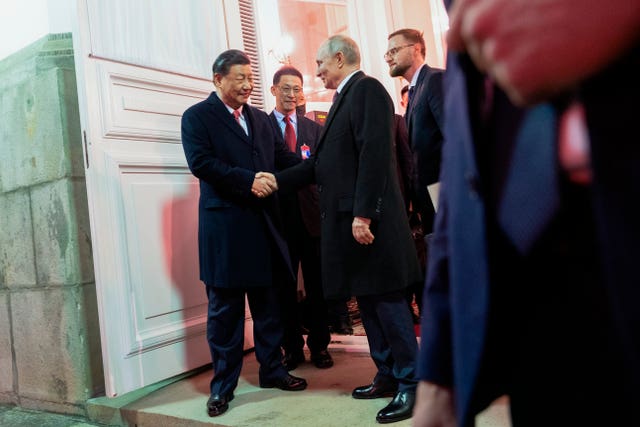
China would “continue to play a constructive role in promoting a political settlement of the Ukrainian issue,” Mr Wang said, an apparent reference to a 12-point peace proposal put forward by Beijing that calls for a ceasefire and negotiations.
The document has already been dismissed by the West, largely because China — which has said it has a “no-limits” relationship with Moscow — is not seen as an impartial broker and the proposal says nothing about a Russian withdrawal from Ukrainian territory it has occupied by force.
Mr Xi’s visit was heavily promoted by both China and Russia but was overshadowed by a visit to Kyiv by Prime Minister Fumio Kishida of Japan, a close US ally and a key Chinese rival in east Asia.
Early on Wednesday, Ukraine faced a new series of Russian drone attacks, which killed at least three people and damaged some infrastructure across the country.
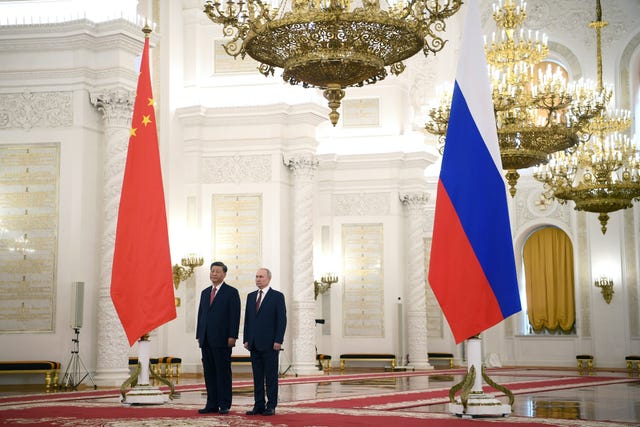
The US and others have continued to express concerns that China may provide military equipment to supplement its purchases of Russian energy resources and provision of computer chips to keep the Russian economy afloat.
In other comments on Ukraine, Mr Wang said Russia and China agreed that the UN Charter must be observed and international law be respected. It said they opposed unilateral sanctions imposed by the US and others to economically punish Mr Putin and his financial backers.
Mr Wang said nothing about the arrest warrant issued for Mr Putin by the International Criminal Court on charges of alleged involvement in abductions of thousands of children from Ukraine.
In a joint statement signed in Moscow, Russia and China emphasised the need to “respect legitimate security concerns of all countries” to settle the conflict, echoing Moscow’s argument that it sent in troops to prevent the US and its Nato allies from turning the country into an anti-Russian bulwark.
“The two sides pointed out that the solution to the Ukraine crisis must respect the legitimate security concerns of all countries and prevent the formation of bloc confrontation and fanning flames,” Mr Wang said on Wednesday in Beijing.
“The two sides stressed that responsible dialogue is the best way to resolve the issue steadily,” Mr Wang said.
“To this end, the international community should support relevant constructive efforts, and the two sides call for the cessation of all actions that could lead to a tense situation and prolonged war, so as to avoid further deterioration or even loss of control of the crisis.”

